
In what way can nutrition affect the well-being of the mind?
The importance of mental health
Consumers are increasingly conscious of the link between the wellbeing of the mind and of the body[1]. Today, physical health and mental health are considered to be of equal importance. As a result, consumer priorities have changed, with higher emphasis being placed on a desire to take care of oneself. This tendency is gradually giving rise to a new market: that of mental wellbeing.
Consumers look at a range of solutions in their endeavor to maintain or improve health. Nutrition is one of them. The food industry therefore has a role to play in providing support to health-conscious consumers.
But what exactly are consumers’ expectations, what are the parameters that affect mental wellbeing and which foods are of most interest?
Decreased physical activity, stress and sleep deprivation are all factors that affect our health
As is shown by the rapid evolution of the market in sports nutrition[2], consumers are placing increasing importance on maintaining physical health. In 2020, mental wellbeing has become as important as physical health[3]. A “healthy mind in a healthy body” is a telling expression, since a lack of sport can be associated with a lack of quality sleep and of self-esteem. And yet, during lockdown a number of people were unable to keep up a physical activity. This can lead to increased stress and sleep deprivation. By consequence, it has a negative effect on mood and disrupts cognitive performance. This is why some people may become less dynamic, more tired or depressed.
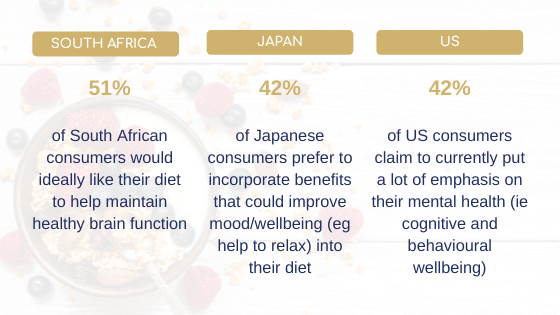
Figure 1: Consumers are looking for food that helps them relax
Growing consumer concerns about stress, anxiety and quality of sleep are becoming key purchasing criteria.
Furthermore, as can be seen in Figure 1, 51% of South-African consumers would like their diet to help them maintain brain function. 42% of Japanese consumers, on the other hand, prefer a diet that helps them feel less stressed. As for Americans, for 42% the emphasis is on mental wellbeing. Growing consumer concerns about stress, anxiety and quality of sleep are becoming key purchasing criteria.
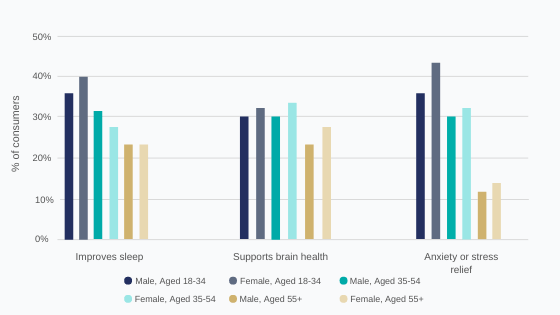
Figure 2: Consumer concerns that drive their purchase by age[4]
In fact, in Canada in 2020, consumers expressed three main concerns to which they attached great importance: quality sleep (42%), mental wellbeing (38%) and emotional well-being (37%).
COVID has accentuated the desire of consumers to take good care of themselves
The consequences of COVID have raised consumer awareness on the subject of mental health. Consumers want products that strengthen their health and immune system so that they can reduce the risk of physical and mental illness. As can be seen in Figure 3, 32% and 55% respectively of French and Spanish consumers feel concerned by this issue. The pandemic has disrupted habits and lifestyles, shifting priorities towards health and wellbeing[5]. Most people now focus on what is essential, in other words physiological needs, and are thus reinventing their own consumption habits. This has an inevitable influence on nutrition.
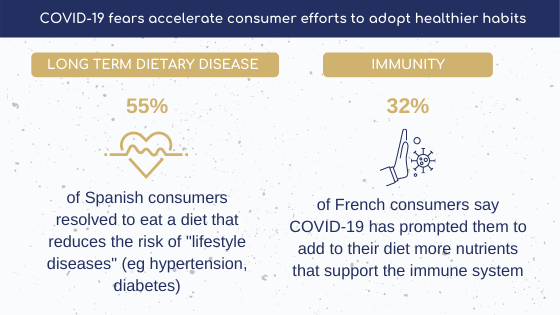
Figure 3: Consumer priorities following COVID
Mental health is the new challenge for the food industry
In 2020, 62% of Thai consumers felt that food is good for the morale. Similarly, 37% of the Indian population eat snacks to relieve stress. In China, 20% of consumers buy food supplements for depression and anxiety.
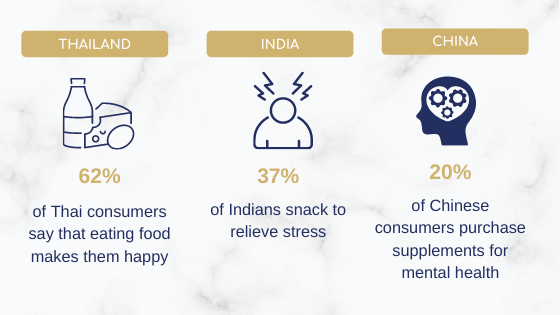
Figure 4: Consumers’ behaviour towards food items.
In addition, Figure 5 shows that one of the priorities of consumers is to purchase high quality products.
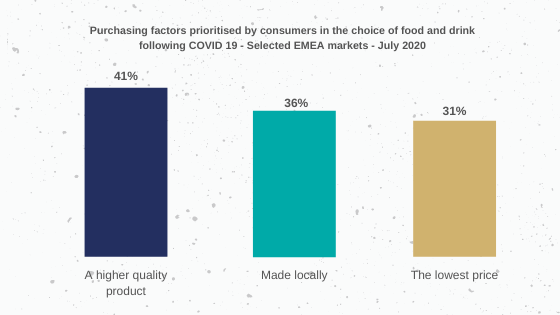
Figure 5: As a result of COVID, consumers’ purchasing behaviour has changed according to their priorities
Food manufacturers can help consumers through better nutrition. Over the course of 5 years, the number of products launched to combat the stress and anxiety of consumers has practically doubled from 725 to 1405. Moreover, the number of launches of new products in the “Brain and Nervous System” category is gradually rising from year to year, increasing from 183 in 2015 to 314 in 2020, i.e. some 130 new products on the market.
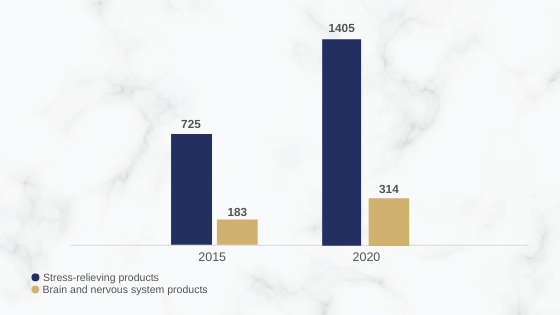
Figure 6: Evolution of the number of product launches among the “stress-relieving” and “brain and nervous system” categories from 2015 to 2020
Focus on foods that are good for morale
Dairy products offer benefits for our well-being of the mind
We already know the advantages of milk for bone development due to its high calcium content. Recently, a new study[6] was carried out on the consumption of dairy products and their effect on the human brain. These effects can demonstrate the essential role that milk plays in protecting the brain against oxidation caused by stress and that can lead to degenerative diseases such as Alzheimer’s and Parkinson’s.
This study revealed the correlation between a high consumption of dairy products and a high concentration of glutathion. Glutathion, it is worth mentioning, is an antioxidant that helps prevent the oxidation of brain cells due to stress. It is composed of 3 amino acids, one of which is cysteine. This amino acid, which is present in milk, can be considered as necessary the production of Glutathione[7]. It is therefore essential to safeguard our nerve cells from stress. This makes milk consumption a good choice for health.
Tryptophan, another important amino acid for mental health
Tryptophan has a proven effect on sleep and also, therefore, on mental health
A journal published in 2020[8] shows the impact of sleep deprivation on the brain. To ensure mental wellbeing we need to optimize the quality of our sleep. Tryptophan, it is worth noting, is the precursor of serotonin and melatonin[9]. Both are called happiness hormones. They are neurotransmitters that have a sedative effect on the brain and therefore create a feeling of wellbeing. Tryptophan has a proven effect on sleep and also, therefore, on mental health[10].
Pronativ®, a native protein that meets this need
Pronativ®– Native Whey Protein is a protein that is rich in alpha-lactalbumin. Alpha-albumin is the peptide in milk that contains the most Tryptophan. Pronativ® contains up to 40% more Tryptophan than a classic whey protein. Pronativ® is also richer in Cysteine and is a source of good quality protein that can be incorporated into the formulas for products designed for the maintenance of good mental health. That is why this pure and natural ingredient, which comes directly from milk, can be adapted to a wide range of nutritional and functional applications. It can be used in drinks, gels and powders without modifying their flavor. Being available in a low lactose version, Pronativ® is highly digestible.
In short, consumer priorities have evolved to keep pace with the rhythm of life and a changing health context. Mental wellbeing is increasingly under pressure in today’s world, leading to stress, anxiety and sleep deprivation. To respond to the problems facing consumers, the food industry offers high quality and innovative products, composed of functional ingredients with real benefits for health and, notably, mental wellbeing. Certain milk proteins such as Tryptophan-rich alpha-lactalbumin are identified as having an effect on sleep and relaxation. Here at Lactalis Ingredients, producer of whey proteins, we offer Pronativ® Native Whey Protein, which is rich in Cysteine, Alpha-Latalbumine and Tryptophan. Pronativ® therefore has a useful place in the formulation of food products that promote good health of mind.
Sources :
[1] Mintel, Chronic stress awakens the need for nighttime food. December 2020.
[2] Charlotte Magnant, Marché de la nutrition sportive. Article BLOG Lactalis Ingredients. Décembre 2020.
[3] Mintel, Food and Drink Nutrition Claims: Incl Impact of COVID-19 – US. December 2020.
[4] Mintel, The future of nutrition, health and wellness : 2020. February 2020.
[5] Mintel, How COVID-19 disrupted food and drink proprieties. October 2020.
[6] Sandeep Ravindran. Dairy Consumption Linked to Better Brain Health. SPLASH! milk science update: May 2015.
[7] Nutranews.org, Le glutathion, le maître antioxydant. Juillet 2016
[8] Abid Bhat. Effects of Sleep Deprivation on the Tryptophan Metabolism. 2020 Nov 23;13:1178646920970902.
[9] Yamashita M. Potential Role of Neuroactive Tryptophan Metabolites in Central Fatigue: Establishment of the Fatigue Circuit. 2020 Jun 29;13:1178646920936279.
[10] Markus CR et al. The bovine protein alpha-lactalbumin increases the plasma ratio of tryptophan to the other large neutral amino acids, and in vulnerable subjects raises brain serotonin activity, reduces cortisol concentration, and improves mood under stress . Am J Clin Nutr 2000;71:1536-1544.















